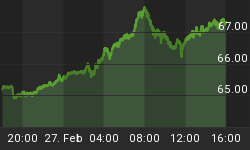As we've noted before (May 22: Hungary: An Emerging Market to Watch) Hungary is one of the key emerging markets to watch at a time when the international risk appetite is shifting. It is suffering from the classic "twin deficits" problem - a hefty current account deficit (7.3% of GDP last year) combined with a substantial fiscal shortfall (6.1% of GDP last year). In addition, foreign currency-denominated loans account for a substantial portion of new borrowing, both business and household, making the economy particularly vulnerable to the negative effects of any currency depreciation.
Today, the National Bank of Hungary (NBH) surprised the market with a larger-than-expected 50bp rate hike, taking the base rate up to 6.75%. The unanimity of the decision was also a surprise, given that the Monetary Council was split over last month's 25bp increase.
The NBH stated that tighter monetary conditions are necessary if it is to meet the government's 3% inflation target over the medium-term, i.e., in 2008. It added that "the Monetary Council intends to create the tighter monetary conditions in several steps..." NBH policy statements tend not to be as unequivocal as they seem, but this certainly points to further rate hikes over the coming months.
Last month, the government managed to pass a significant package of fiscal tightening measures through parliament. The forint has started to rally again. So, time to relax about Hungary? Hardly. In fact, the size of today's rate hike, and NBH Governor Jarai's warnings about the inflation outlook, illustrate the extent to which the NBH is now between a rock and a hard place, thanks to that declining international risk appetite and to the fiscal policy mix being pursued by the government.
The fiscal reform package is focused almost entirely on tax hikes - in particular, an increase in the VAT rate on some goods and in social security contributions. In addition, regulated prices, including the price of natural gas, are set to rise significantly. These steps will lead to a marked increase in headline inflation. June's headline HICP (EU-harmonized consumer price inflation) came in at an annual rate of 2.9%, the same rate as in May, but the national measure of core CPI jumped to 1.3%, up from just 0.5% back in January, thanks to higher services prices and to the impact of the forint's weakening in the spring. Going forward, the headline number will be boosted by three fuel price hikes in June and July, and by additional energy price increases and higher VAT, effective September.
Jarai has called for spending cuts instead of inflation-inducing tax hikes, but PM Gyurcsany has dismissed that approach as "brutal." With municipal elections set for October 1, the Socialist-led coalition is not eager to start swinging the public spending ax. Indeed, the PM appears to be moving away from his earlier staunch commitment to bring the forint into the pre-euro ERM-2 waiting room in 2008 and to adopt the euro itself in 2010. Last week he said that the country's euro-convergence plan - due to be presented to Brussels by early September - must be credible but must not sacrifice economic growth. Even after the recent package of tax hikes, the fiscal deficit is still expected to hit 8% of GDP this year and 5% in 2007. It is likely that September's plan will publicly acknowledge what most analysts already predict - that Hungary will not be joining the Euro-zone until at least 2012.
Meanwhile, the impact of the tax hikes is likely to slow the pace of real GDP growth to around 2.0% next year, which would be half the rate anticipated this year, even as the rate of inflation climbs. And therein lies the NBH's dilemma. The forint's weakening over the past year has already increased households' debt payment burden, and the tax hikes will further squelch domestic consumption. The economy is going to slow at the same time that the central bank must hike rates to meet the inflation target.















